Most Americans want President Obama to apologize to the leaders of friendly countries who were spied on by the NSA, but people are less opposed to spying on more hostile leaders
Today the leaders of the National Security Agency (NSA) were grilled by Congressmen on the latest allegations from Edward Snowden that the United States has spied on the cell phones and general communications of tens of millions of foreign citizens and over 30 foreign leaders, including the German Chancellor, Angela Merkel. The Obama Administration has said that the US no longer monitors the communications of foreign leaders such as Angela Merkel, but the news has caused a diplomatic crisis between America and some of its closest allies. The news has also opened a debate in Europe about whether talks on a potential EU-US free trade area, one of the Administration's most important foreign policy goals, should be suspended.
The latest research from YouGov shows that most Americans (53%) want President Obama to apologize to foreign leaders of allied and friendly countries for spying on their personal communications. This is true regardless of political identification, with 50% of Democrats and 52% of Republicans wanting the President to apologize.
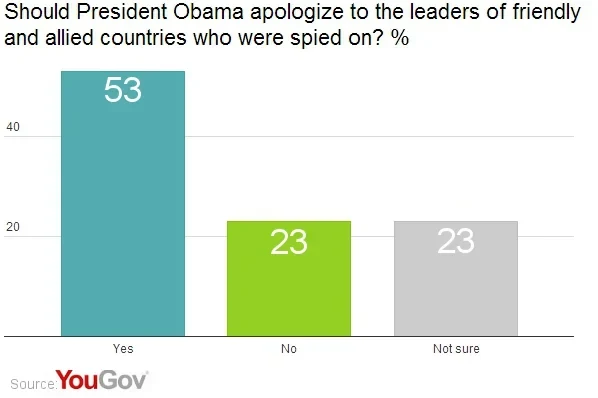
When asked whether the revelations would damage US diplomatic relations, 78% said that there would be damage to the relationships. 25% said that there would be serious damage while only 9% think that there will not be any negative consequences.
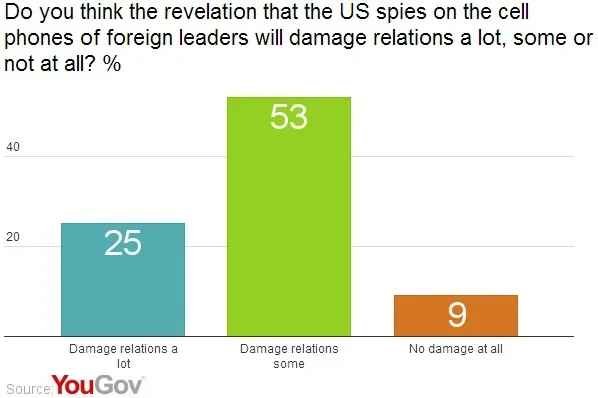
Interestingly, though, there is little partisan difference in perceptions of whether or not relations will be damaged. Democrats seem to have a lot more faith in the ability of the administration to rebuild bridges with friendly foreign countries, as 58% of Democrats say that the damage will only be short-term and only 29% believe that it will be long-term. Republicans, on the other hand, tend to think that the damage will be long-lasting (49%) rather than temporary (39%).
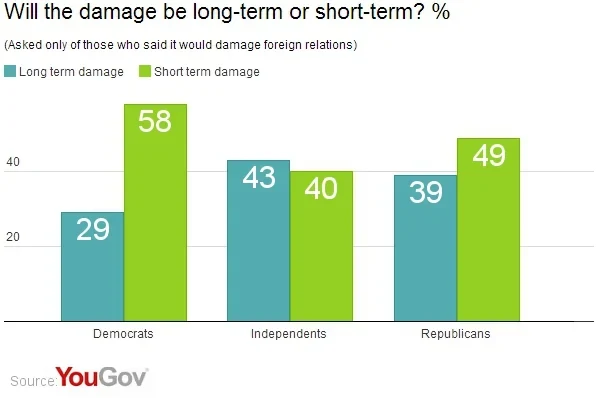
Most Americans (66%) think that foreign leaders such are genuinely angry at these allegations, though out of this 66%, 36% say that they are also posturing for the media. 20% say that they are not actually angry and are just posturing.
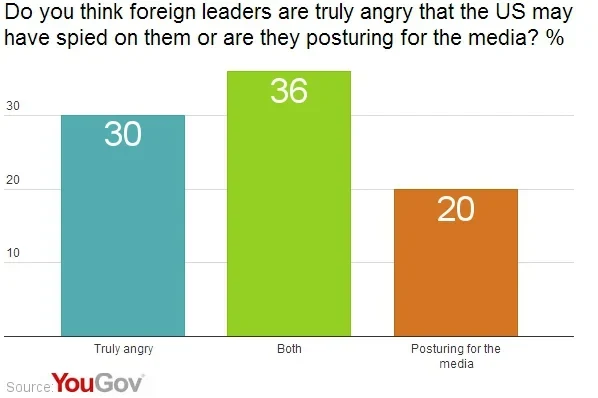
Americans are generally supportive of spying on the leaders of countries thought to be hostile to the United States but tend to oppose spying on allies. 49% of Americans say that it is acceptable to spy on the Iranian President, Hassan Rouhani. Only 23% say that it is acceptable to spy on British Prime Minister David Cameron and 25% say that it is acceptable to spy on Germany's Angela Merkel. Both countries currently have soldiers fighting alongside Americans in Afghanistan.
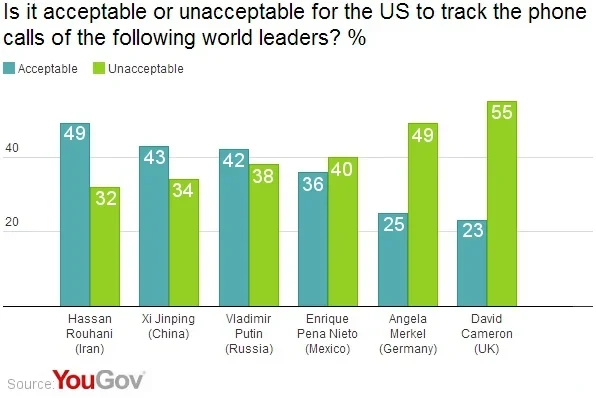
The source for these latest revelations was Edward Snowden, the former NSA computer specialist who fled the United States with vast amounts of data revealing that the NSA had monitored US communications as well as foreign communications. Most Americans (50%) disapprove of his decision to leak this information while 35% agree. Support for prosecuting Snowden has also increased. After the first revelations 27% of Americans supported prosecution, which rose to 34% after he sought asylum in Russia in July. Just under four months later 39% of Americans now support prosecuting Snowden.
Full poll results can be found here and here.
Image: Getty.








